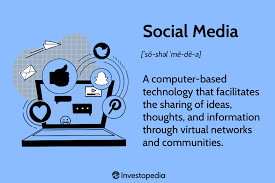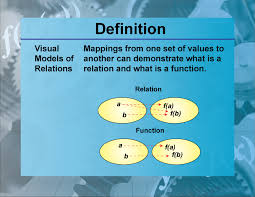Exploring the Evolution of Social Networking: Connecting People in the Digital Age
The Impact of Social Networking in Today’s Society
Social networking has become an integral part of modern society, revolutionizing the way people connect, communicate, and share information. Platforms like Facebook, Twitter, Instagram, and LinkedIn have transformed the way we interact with one another and the world around us.
One of the key benefits of social networking is its ability to bridge geographical boundaries and connect people from different parts of the world. Through social media platforms, individuals can engage in real-time conversations, share experiences, and form relationships regardless of physical distance.
Furthermore, social networking has empowered individuals to express their opinions, raise awareness about important issues, and mobilize for social causes. Activists and organisations leverage social media to amplify their messages and reach a wider audience, sparking conversations and driving change.
Businesses also benefit from social networking by leveraging these platforms to engage with customers, promote products and services, and build brand loyalty. Social media marketing has become a powerful tool for businesses to connect with their target audience and drive sales.
However, the rise of social networking has also raised concerns about privacy, cyberbullying, misinformation, and mental health issues. It is essential for users to be mindful of their online behaviour and take steps to protect themselves from potential risks associated with social media use.
In conclusion, social networking has had a profound impact on today’s society by facilitating communication, fostering connections, empowering individuals and businesses alike. While there are challenges associated with its use, when used responsibly and ethically, social networking can be a powerful tool for positive change in the digital age.
Understanding Social Networking: Key Insights and Essential Tips
- What is social networking and how does it work?
- Which are the most popular social networking platforms?
- How can I protect my privacy while using social networking sites?
- What are the benefits of using social networking for businesses?
- How does social networking influence relationships and communication?
- What measures can be taken to combat cyberbullying on social media?
What is social networking and how does it work?
Social networking refers to the use of online platforms and websites to connect with other individuals, share information, and engage in virtual communities. These platforms allow users to create personal profiles, interact with others through messages, posts, and comments, and build networks of friends or followers. Social networking works by enabling users to establish connections with others based on common interests, affiliations, or relationships. Users can share updates, photos, videos, and links with their network, sparking conversations and interactions. Through features like likes, shares, and comments, social networking platforms facilitate engagement and communication among users in a dynamic online environment.
Which are the most popular social networking platforms?
In the realm of social networking, there are several prominent platforms that have garnered immense popularity among users worldwide. Some of the most widely used social networking platforms include Facebook, Twitter, Instagram, LinkedIn, and Snapchat. Each platform offers unique features and functionalities catering to different types of users and purposes, ranging from connecting with friends and family to professional networking and content sharing. These popular social networking platforms continue to evolve and shape the way people communicate, interact, and engage with each other in the digital age.
How can I protect my privacy while using social networking sites?
In today’s digital age, protecting your privacy while using social networking sites is paramount. To safeguard your personal information, consider adjusting your privacy settings to control who can view your profile and posts. Be cautious about sharing sensitive details such as your address or phone number, and think twice before accepting friend requests from strangers. Regularly review and update your security settings, use strong, unique passwords for each platform, and enable two-factor authentication for an added layer of protection. Additionally, be mindful of the content you post online to avoid oversharing and compromising your privacy. By being proactive and vigilant about your online presence, you can minimise the risks associated with using social networking sites and enjoy a safer digital experience.
What are the benefits of using social networking for businesses?
Utilizing social networking platforms offers numerous benefits for businesses in today’s digital landscape. Firstly, social networking provides a cost-effective way to reach a vast audience and engage with potential customers on a global scale. By establishing a strong online presence, businesses can increase brand visibility, drive website traffic, and generate leads. Additionally, social networking allows companies to gather valuable insights into consumer preferences and behaviour, enabling them to tailor their products and services to meet customer needs effectively. Furthermore, by fostering direct communication with customers, businesses can build relationships, enhance customer loyalty, and receive real-time feedback to improve their offerings. Overall, leveraging social networking for business purposes can lead to increased brand awareness, customer engagement, and ultimately drive business growth and success.
How does social networking influence relationships and communication?
Social networking has a significant influence on relationships and communication in today’s digital age. These platforms provide a convenient way for individuals to connect, communicate, and share information with others, regardless of geographical barriers. Social networking has transformed the way people maintain relationships, allowing them to stay in touch with friends and family members easily. However, it also poses challenges such as the potential for miscommunication, misunderstandings, and the blurring of boundaries between personal and professional relationships. Despite these challenges, social networking platforms have undeniably shaped the way we interact with others and have become an integral part of modern communication dynamics.
What measures can be taken to combat cyberbullying on social media?
In response to the frequently asked question about combating cyberbullying on social media, several measures can be implemented to address this pressing issue. Firstly, social media platforms can enhance their reporting and blocking features to empower users to flag and prevent abusive behaviour effectively. Educating users, especially young people, about responsible online conduct and the impact of cyberbullying is crucial in fostering a safer digital environment. Collaboration between platforms, law enforcement agencies, and mental health professionals can help develop comprehensive strategies to identify and support victims of cyberbullying. Implementing strict policies and regulations against cyberbullying, along with swift and appropriate enforcement actions, are essential steps in combating this harmful behaviour online.




